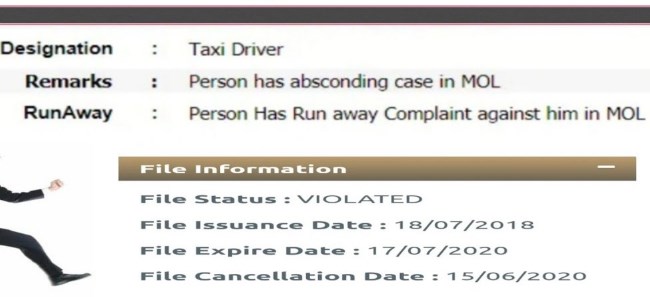How to Check Absconding Status in UAE – Checking your absconding status in the UAE can be a daunting situation, especially since it carries serious legal consequences like deportation, fines, or blacklisting from future employment.
However, it’s important to first understand what absconding means. In the UAE, absconding refers to when an employee leaves their job or fails to show up for work for more than seven consecutive days without providing a valid reason.
Employers have the legal right to file an absconding report if they believe their employee has violated this rule.
How to Check Absconding Status in UAE
Thankfully, technology has made it easier to check your absconding status online without visiting any government office. One of the main platforms to use is the Ministry of Human Resources and Emiratisation (MOHRE) website. Here’s a quick guide on how you can check your absconding status:
- Visit MOHRE’s Website: Head over to the official MOHRE portal (https://eservices.mohre.gov.ae) and log in or create an account if you don’t have one.
- Navigate to Absconding Case Status: Once logged in, click on the “My Services” tab, and select “Absconding Case Status.” You will need to enter your passport or Emirates ID number.
- Submit the Information: After inputting the required details, click “Search.” If an absconding case has been filed, your status will appear on the screen.
This process is fairly straightforward and helps you quickly know whether an absconding case is pending against you. But that’s just the first step.
What Happens If You Are Marked as Absconding?
If your employer has filed an absconding report against you, it’s crucial to act quickly. Absconding cases have legal consequences that include cancellation of your labor card, fines, deportation, and in some cases, imprisonment
The Ministry typically accepts an absconding case if the employee has not shown up for work for more than seven days, but false absconding reports can occur. For example, some employers might misuse the system to avoid paying end-of-service benefits
What Should You Do If You’re Wrongfully Accused?
If you believe you’ve been falsely accused of absconding, you should gather any evidence that can support your claim, such as emails, attendance records, or medical certificates proving why you were absent. After gathering this documentation, here are the steps you can take:
- Contact Your Employer: First, try to resolve the issue directly with your employer. Sometimes, a simple misunderstanding or miscommunication can be cleared up without further legal involvement
- Seek Legal Help: If your employer is unwilling to withdraw the case, it’s essential to seek legal counsel. A lawyer specializing in UAE labor law can help you file a complaint with MOHRE, gather evidence, and represent your case
- File a Complaint with MOHRE: In cases where an amicable resolution cannot be reached, you can file a formal complaint with MOHRE. The ministry will review your documentation and work towards resolving the dispute
Consequences of Being Found Guilty
If the absconding case is upheld, the consequences can be severe. You might face a one-year work ban in the UAE, meaning you won’t be able to legally work in the country for that period. For more serious cases, a permanent ban or deportation is possible
How to Remove Absconding Status
To clear your name, you can ask your employer to withdraw the absconding report. If they agree, they can submit a request to MOHRE to cancel the case
However, if they refuse, you will need to fight the case legally. A lawyer can assist in navigating this process, ensuring you provide the right documents and attend necessary court hearings. Keep in mind that absconding cases can take weeks or even months to resolve, depending on their complexity
Conclusion
In summary, while being accused of absconding is a stressful situation, there are clear legal processes to check your status and resolve the issue.
Checking your status online through MOHRE is just the first step. From there, it’s about addressing the situation head-on by speaking with your employer, gathering documentation, and possibly seeking legal advice. Taking proactive steps will give you the best chance of resolving the issue quickly and protecting your rights.

